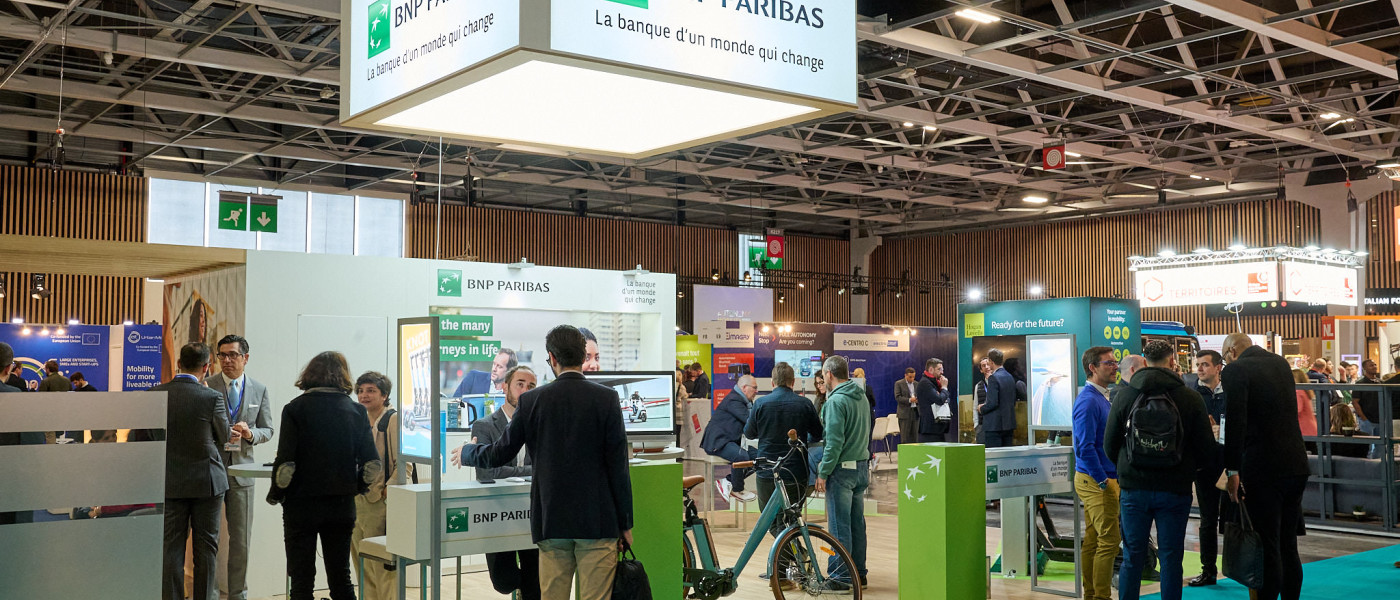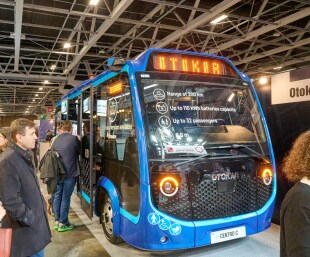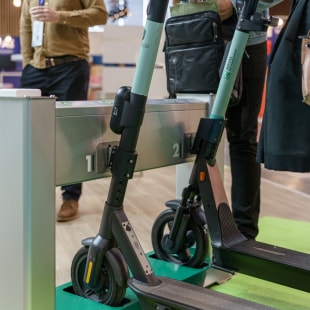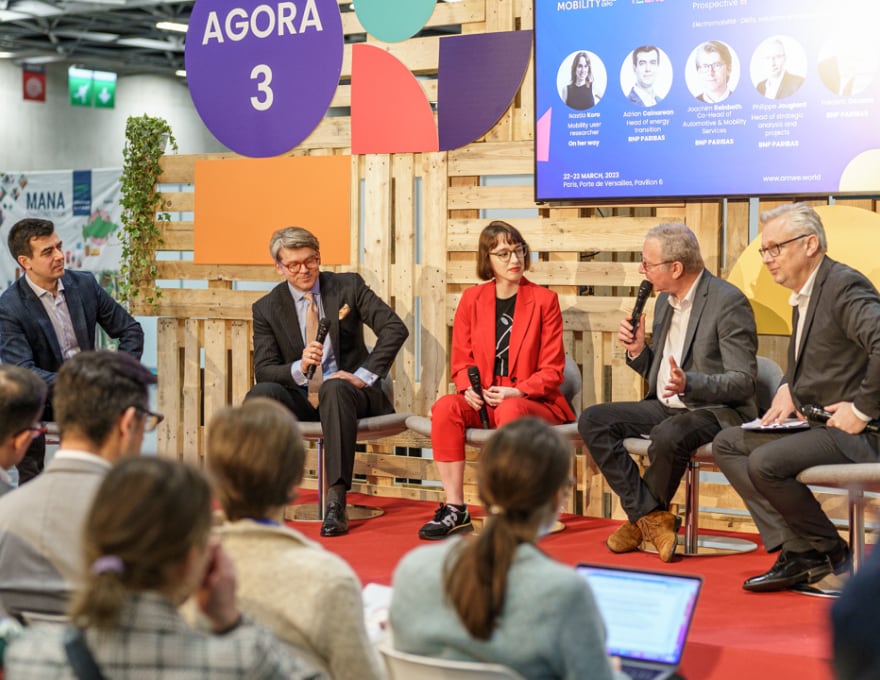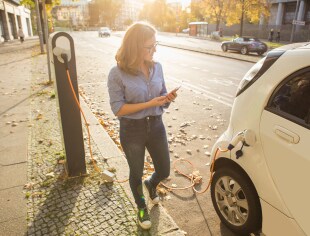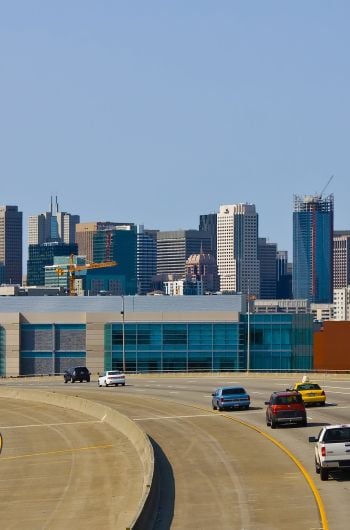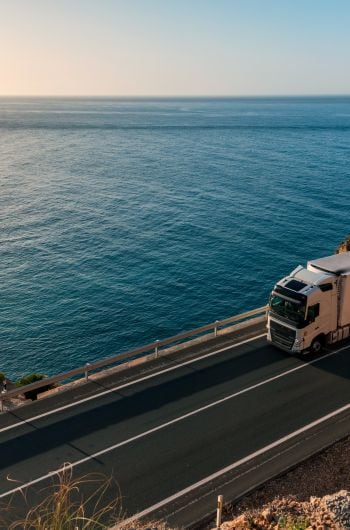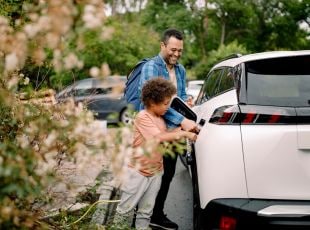1 - Cities, the laboratory of smart mobility
How can we become "mobilists"? This question is being considered by major cities, which are aware that they need to remodel to accommodate new uses, or even encourage them. In this respect, European cities are acting as laboratories. Berlin, the German capital which was highlighted at the conference "How is the city of Berlin succeeding", has relied on collaboration between private companies and public authorities to move towards connected mobility and services in an application called Jelbi. Where should new stations be installed? How to choose the right platform provider. In response to these questions, and aware that it could not manage everything on its own, Berlin has chosen to collaborate with partners, some of them private. "You have to be humble and work with players who know the subject, start-ups that encourage innovation," says Damian Bown, Head Trafi, a company which develops mobility platforms and has worked with the city. The Jelbi public transport and related services application is the result of a participatory approach: the public authorities questioned users in different neighbourhoods to identify their needs in terms of mode of travel, locations, types of access, etc. "Only technology allows us to choose the best way to get around," he says. It is only through technology that we can choose the right mode of transport for each journey and manage multimodality," said Damian Bown, automated transport management, keyless vehicles, services without payment by code on a terminal... all these technologies make it possible to experience mobility as a service”.
2 - What role does public transport play in accessibility and inclusion?
At the heart of the energy and mobility transition, public transport obviously plays an essential role. Accessible and inclusive, it is the guarantor of a fair transition. This was the theme of the conference: "Without a just transition... there will just be no transition!" Cities such as Amsterdam, Manchester and Bogota are making transport accessible by reducing fares and making it safer for women and the elderly. Economically accessible for users, but also accessible to open up certain neighbourhoods in cities with sometimes narrow and steep streets.
3 - Shared and micro-solutions at the heart of sustainable urban mobility
The advantages of shared mobility are well established. As a complement to public transport, are shared cars, bicycles and electric scooters a way to relieve congestion in cities and provide a sustainable alternative to the famous last mile? There are emerging routes, but we still need to find a profitable model for this economy. At the conference "Has shared mobility reached its peak?", players in the sector gave their views: "Bikes and scooters must be connected to public transport, but to do so, the necessary infrastructure must be built, such as stations near public transport services, for example," stressed Ederm Ovacik, co-founder of Donkey Republic, a shared bike company operating in several European countries. "In addition to complementing public transport networks, shared mobility must be reliable, secure and affordable," said Maxime Romain, co-founder of Dott, a French-Dutch operator of self-service electric scooters.
4 - Ensuring the development of electric mobility
With the prospect of the end of combustion engine cars as of 2030, it is imperative to develop electric recharging infrastructures. The market is constantly evolving, as are batteries and charging stations. At the conference "Electromobility: Challenges, Solutions and Perspectives", mobility researcher Nastia Koro reminded us: "Users are ready to use sustainable modes of transport, but we need to build the necessary infrastructure and communicate. If consumers don't know that they can get from A to B with a charged electric car, they won't take it."
"To accelerate the transition, we need to provide integrated offers, which include not only the financing of a vehicle, but also access to a charging station and energy-related services," said Andrian Cainarean, Head of energy transition at Arval.
Philippe Jouglard, Head of strategic projects at BNP Paribas Leasing Solutions, insists: "Increasing the number of recharging infrastructures is the key to the problem and it is our job to provide the financing for these projects. But we must ensure that consumers are not lost. Today, they don't know what kind of charger they need to plug in, what power they need. We need to simplify everything."
Joachim Reinboth, Co-head of automotive and mobility services at BNP Paribas CIB, also called for an acceleration of this equipment:
"We need to accelerate the fight against global warming, but in order to do so, cities, industries and banks need to work together".
Autonomy 2023 - Conference « Electromobility : challenges, solutions and perspectives »
5 - Companies: more fleets of sustainable vehicles
Mobility is also changing in companies, which are increasingly equipping themselves with sustainable vehicle fleets. At the Electromobility conference, Andrian Cainarean, recalled that Arval, the leading full-service vehicle leasing company, aims to offer up to 700,000 electrified vehicles by 2025, i.e. 35% of its fleet. In addition to the electrification of these fleets, the sharing of mobility is another way of reducing the number of vehicles needed and therefore their carbon footprint. Charles de la Tour, in charge of strategic alliances for Vulog, a technology platform specialising in car-sharing, emphasises the benefits: "It is possible to reduce the size of your fleet by 30% if you share it, and to reduce its carbon footprint by 20%".
6 - Transforming urban logistics with last mile delivery
How can we transform the last mile and make deliveries safer, or facilitate urban logistics while reducing emissions? These thoughts were the focus of the conference entitled "Last mile logistics: the help of robots". Octave Labbé, Project manager at Goggo Network, a company specialising in the creation of autonomous mobility networks in Europe, explained why robots and fleets of autonomous vehicles can be solutions: "City centres are progressively becoming pedestrian areas. So how do you maintain deliveries? You don't need something that goes very fast, you just need a well-organised fleet that can go anywhere. But robots are very easy to drive, they are available as soon as you need them. It's very complementary to bike deliveries."
In Boston, where the experiment was set up during the health crisis, Tony Ho, Vice-president of Segway Robotics Spearhead, said: "During the pandemic, we couldn't find people available to deliver, so the robots became a necessity. Today, the challenge for the industry is to achieve human-robot parity, and possibly reduce the human share."
7- Develop the autonomous vehicle
To relieve congestion on city streets and decarbonise them, autonomous public transport is being deployed, thanks to the maturity of the technology and a real political will. Piotr Kryestzwski, Mayor of the city of Gdansk in Poland, tested an autonomous bus in his city, which is completely safe: a success that will be repeated this summer in the city as well as in many countries in Europe and around the world.
Meeting the challenge of sustainable mobility
Mobility is changing, and with it the layout of cities and their uses. To meet the challenge of sustainability, viable economic models must be defined for both companies and public authorities, and close collaboration must be established between all the players to finance this essential transition.
The Group, which will be present at next upcoming event related to this theme: Drive to Zero, the new meeting place for carbon-free mobility players, will be held at the Grand Palais Ephémère in Paris from April 5 to 7. The aim of this event is to bring together public and private players in one place to accelerate the deployment of new solutions that meet the challenges of green mobility.
At this event, Sonia Chebini, Head of energy partnerships, Arval France, Eric Mevellec, CEO of DREEV and Philippe Jouglard, Head of Strategic Analysis & Projects, BNP Paribas Leasing Solutions will participate, at a round table, 5 April 2023 at 4pm, on the theme of "Accompanying the development of electric vehicles in France with two-way recharging stations V2G : a means to optimise energy management based on consumer and network needs ... "
